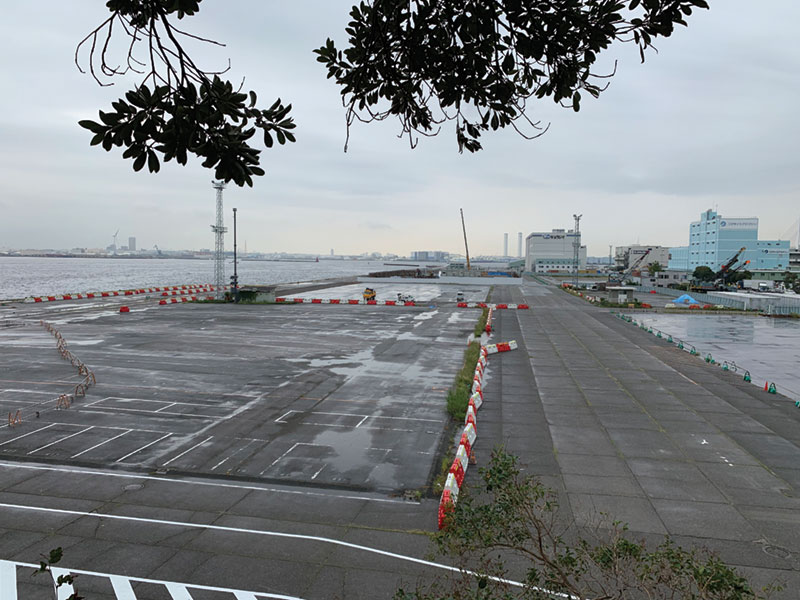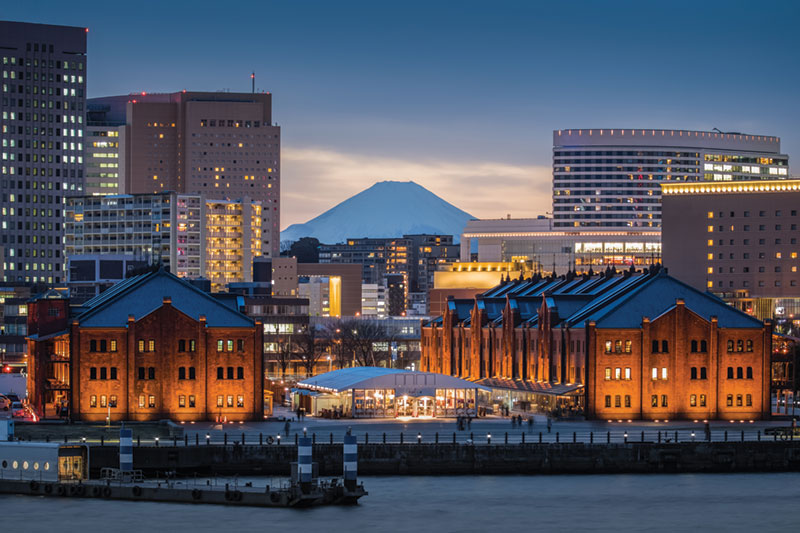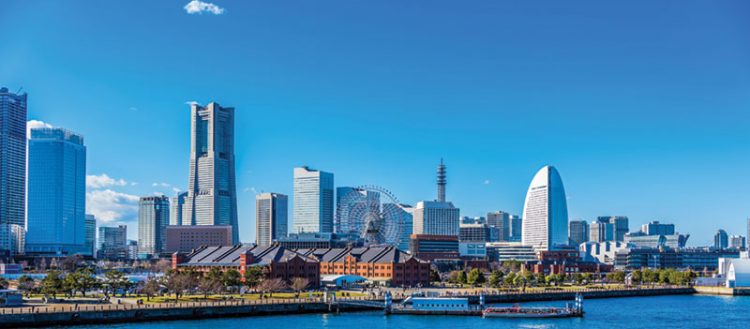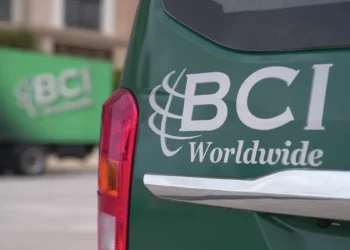Inside Asian Gaming takes an in-depth look at the challenges facing Yokohama in 2021 if it is to realize its IR dream.
When Yokohama, with its excellent environment to operate an IR, expressed its intent to make a bid, most of the operators who were originally eyeing Osaka suddenly turned their focus to this city of almost 4 million people. But while operator recruitment has already begun in Yokohama, it is still far from smooth sailing. And the possibility that Yokohama’s position as the preeminent candidate location will be turned upside down, if not destroyed, is becoming more and more likely.
Yokohama city is located approximately 30 minutes from central Tokyo. The city is substantial, with a population of around 3,760,000 (according to the 2020 consensus) and practical GDP of JPY1.32 billion. However, it is not impregnable.

Yokohama city’s “For Yokohama’s Bright Future – Yokohama Innovation IR” PR video touches on an aging and declining population, mentioning that the working age population will decline by 730,000 by the year 2065 to 1.62 million, which is about two-thirds of the current number. It is also estimated that the elderly population will increase by 150,000 to 1.08 million. The number of listed companies and corporate tax take for Yokohama is lower than Osaka and Nagoya, not to mention Tokyo, and the government’s IR video explains that the “budget for each individual citizen is quite low.”
For the past couple of years, the city has been preparing for an IR bid in an attempt to turn this crisis situation around and promote sustainable economic growth. The RFP started in January of this year, and one operator will be selected around summertime.
If approved for a license by the national government after May 2022, the plan is to open an IR late in the decade. However, the fork in the road of this schedule will come with the Yokohama mayoral election, for which the current term ends on 29 August 2021.
It will be the leaders of local government who will head Japan’s IR location bids. In Yokohama, this means the city mayor – a position currently held by Fumiko Hayashi. Naturally, the city council has the final say on whether to pursue a bid or not, but the council tends to follow the lead of the mayor and, under Hayashi, has been overwhelmingly supportive of an IR bid. If things were to change in August with Yokohama electing a mayor who is against IRs, the city’s bid won’t happen. With the current schedule, the mayoral election will take place either directly before or directly after Yokohama’s operator selection, which will take place just before a basic agreement is signed between the city and operator.
 The anti-IR groups in Yokohama have been especially active of late, and 75-year old city councilman Masataka Ota (Constitutional Democratic Party) will be hoisting the anti-casino flag as a mayoral candidate. Ota held a press conference at Yokohama City Hall on 15 January stating, “If I become the mayor of Yokohama, the casino issue will disappear that very day. To put it plainly, I will not do casinos.”
The anti-IR groups in Yokohama have been especially active of late, and 75-year old city councilman Masataka Ota (Constitutional Democratic Party) will be hoisting the anti-casino flag as a mayoral candidate. Ota held a press conference at Yokohama City Hall on 15 January stating, “If I become the mayor of Yokohama, the casino issue will disappear that very day. To put it plainly, I will not do casinos.”
He told IAG in a phone interview, “I understand that an IR would make money. But I’m against casinos. The national government will allow gambling in certain areas and those areas can make money from it. Isn’t it the same as the old Akasen?” Akasen refers to a red-light district, marked by a red line on police maps, where quasi-sanctioned prostitution took place between 1946 and 1958 while the Anti-Prostitution Law was being enforced.
Ota further opined, “Pachinko has been made legal (although cash exchange is not allowed) and is said to be a JPY20 trillion industry, and how has that turned out? I believe essentially, pachinko also doesn’t work.”
Yokohama has chosen an IR bid to break through the economic difficulties it faces, and if that plan is gone, another one must be presented in its place. Councilman Ota thinks the IR candidate location at Yamashita Pier should instead be used for a cutting-edge research center for robots, as well as a seaside resort. Other ideas for raising revenue include development of a former US military base site nearby and abolition of the systematic rehiring of civil servants who have passed retirement age, but surely none of these or even a combination thereof would attain the economic waves an IR would.
Meanwhile, incumbent Mayor Hayashi, who is in favor of an IR, has not made it clear if she will run for reelection. This is her third term and according to a Yokohama ordinance mayors must “make efforts to avoided being appointed to mayor more than three terms.” Ota’s stance is, “There is nothing legally binding here. I personally would like to run against Mayor Hayashi.”
What would happen if any anti-IR candidate, if not Councilman Ota, was to win this election? According to the Yokohama schedule, the new mayor would be announced just prior to or just after the RFP is complete. As it will definitely happen before a basic agreement is signed, such an outcome could be disastrous for an operator who has spent a massive amount of time, effort and money on the RFP.
 IAG asked the Yokohama IR Promotion Council if they had any obligation of compensation in such an event, to which a representative responded, “No such obligation has been decided on. All the burden of the RFP is the responsibility of the operator.” Regarding timing, they said, “We don’t know if the election or the operator selection will happen first. They really have nothing to do with each other.”
IAG asked the Yokohama IR Promotion Council if they had any obligation of compensation in such an event, to which a representative responded, “No such obligation has been decided on. All the burden of the RFP is the responsibility of the operator.” Regarding timing, they said, “We don’t know if the election or the operator selection will happen first. They really have nothing to do with each other.”
This presents a major issue. The biggest IR operators in the world are all flocking to Yokohama. On the other hand, only MGM Resorts is actively bidding for a property in Osaka, which would be a similar scale to Yokohama. If, by chance, Yokohama were to drop out of the IR race after August, timewise, all of these operators would be left without a city to bid on. The competitive environment among the corporate giants would disappear, and ending that race without a winner would be a massive blow to Japan’s IR ambitions.
However, this is a vital process from the perspective of respecting the will of the local residents and the basis of democracy. Even though the operators must be well-aware of this fact, the lack of clarity even at this late stage is undoubtedly cause for concern.
Furthermore, there are rumors that Tokyo may be a late entry to the race after the Tokyo Metropolitan Assembly election on 4 July. In the memorandum on questions submitted to the national government by House of Representatives member Kenji Eda of the (Constitutional Democratic Party) on 9 February of this year, one of the questions was, “I’ve heard Tokyo is preparing to announce an IR bid after the Metropolitan Assembly election, with Odaiba as the candidate location. How involved in this is the national government and what information has been shared?”
It’s a question yet to be properly answered.
The clock is ticking for a Yokohama IR and the pathway there appears as long and treacherous as ever.
































